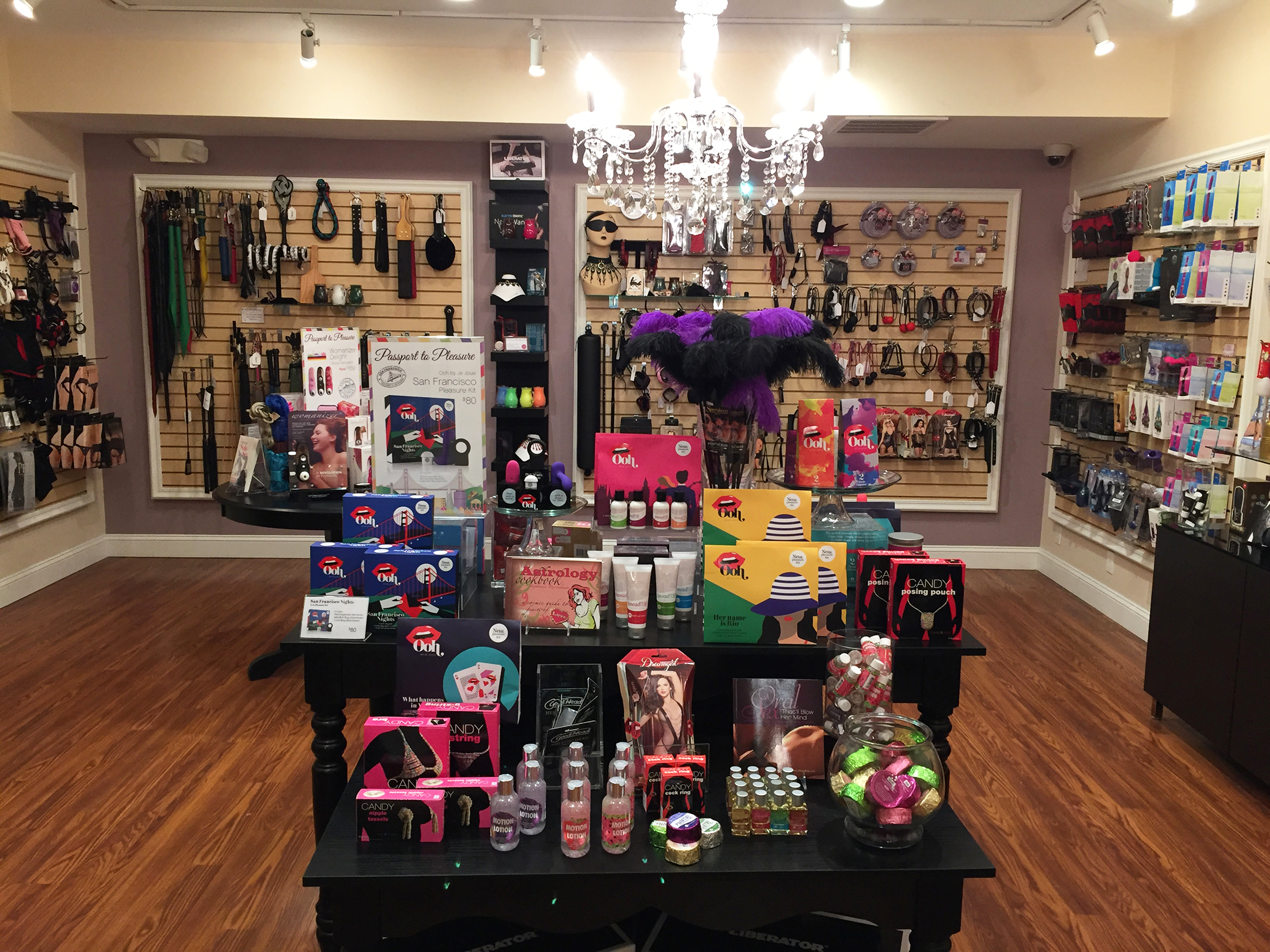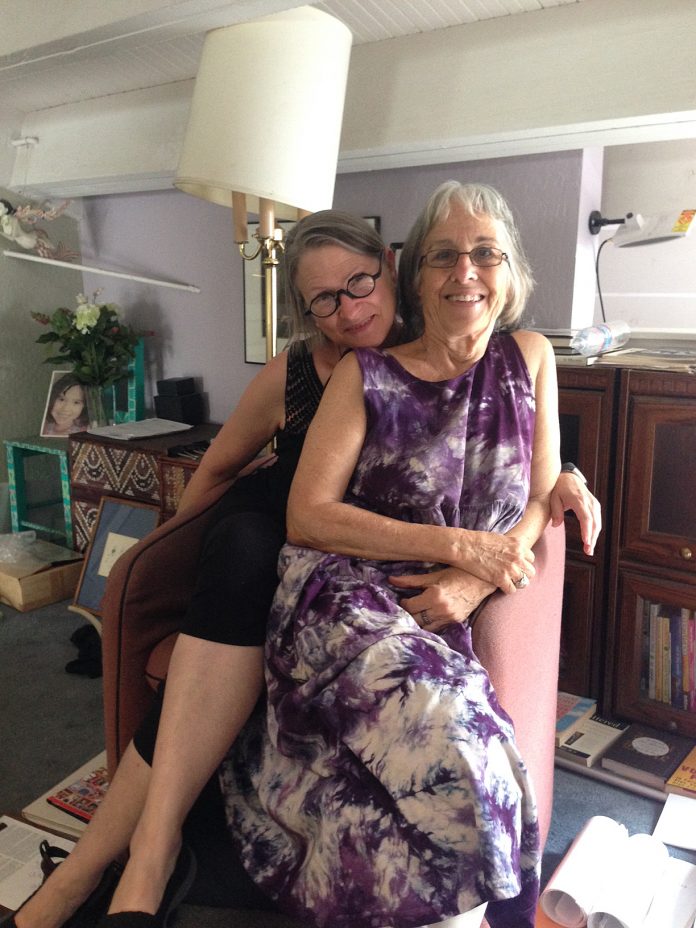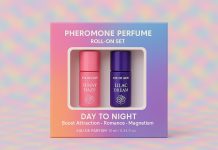(Note: This story appears in the June 2022 issue of SE Magazine)
*Story by Larry Kaplan
Good Vibrations’ Sexologist Carol Queen has found it very informative — and conducive to business — to have frank discussions with customers about their sexual wants and needs.
b
efore Good Vibrations’ sexologist Carol Queen moved to San Francisco 35 years ago, she was an activist with the University of Oregon’s Queer Alliance. When HIV/AIDS hit, Queen wanted to get professionally credentialed. So when she heard about the Institute for Advanced Study of Human Sexuality’s quirky, one-of-a-kind graduate program, Queen thought, “There’s a thing called sexology? That’s what I should do,” and promptly enrolled.
Queen soon met Good Vibrations’ founder Joani Blank, who hired her as a store staffer. Good Vibrations became Queen’s home base while completing her doctorate. She was eventually named Staff Sexologist and 32 years later remains an integral part of the iconic chain.
SE Magazine spoke with Queen about her work at Good Vibrations, the company’s history and what exactly has kept her engaged for three-plus decades.
SE: Was Good Vibrations a role model for other modern adult retail stores?
QUEEN: In the early days, we communicated regularly with the owners of numerous stores modeled after Good Vibrations. With the Babeland stores, we had a mentor-like relationship. So, when owners Rachel and Claire decided to retire, we were the logical buyer.
SE: How has your role changed in the 32 years since you started?
QUEEN: I initially just worked on Saturdays. In conjunction with my sexology program, talking frankly with sex store customers about their wants and desires was very informative. I soon worked half-time while writing, speaking, and completing my doctorate. The self-employment was great adjunct work to my Good Vibrations role; doing things outside that reflect well and give us something to sell inside.
Now our educational department includes Educational Director Andy Duran. My role as a sexologist includes representing the company to the public and press. Staff education remains critical because that’s our difference. We were the first to integrate the kind of sex education people lacked, which allowed us to do the best job of selling our products. When Joel arrived, he understood our mission and the Good Vibrations difference. That was a significant moment in our history.
SE: Was Good Vibrations the first modern woman and couple-friendly store?
QUEEN: The first was Eve’s Garden in New York. We were second, but they were even more woman-focused. Men and couples could only shop a few hours a week. Joani understood that men and people of other gender identities would also appreciate the store. However, she wouldn’t hire men initially because the old-school stores had primarily men.
In the ‘70s, I’d visit arcade-based stores. I rarely saw women working in them. We were different; Joani’s store felt homey, jam-packed with books, toys, and personal care stuff. If somebody became overwhelmed, they could sit in the store’s massage chair. Joani encouraged hanging around and exploring the books, which inspired more questions. This mixture of education and retail always remained.
Attending ANME and other shows showed us how other stores were beginning to pivot and helped us develop close relationships with many vendors. Fun Factory, LELO, and others were shifting to innovative silicone vibrators. Joani communicated with the toy industry from the beginning about products and what she and customers wanted.

SE: Many adult stores have challenges opening or remaining open due to community resistance. You’ve actually received San Francisco’s Legacy Business Historic Preservation Fund grants. Talk about your relationships with San Francisco and your other communities.
 QUEEN: I’ve always believed Joani made the right choice opening this store in San Francisco, where there was already discourse on a city level about sexuality issues. There was a robust, politicized gay community plus awareness of the sex therapy community. And Joani was always a good corporate citizen. She had community events at the store and got involved in the neighborhood and community. So, when San Francisco started a legacy business program, we applied. We had to answer questions at a friendly city hearing, but it wasn’t an uphill battle. We had to do the same thing 25-plus years ago when we opened at Berkeley, where they had zoning laws. And opening in Palo Alto required a negotiation process. Conservative locales will always be challenging, but Joani’s insight about linking up with sex therapists and the medical community — these respected professionals who can communicate to decision-makers that a store will be a positive — helps a lot.
QUEEN: I’ve always believed Joani made the right choice opening this store in San Francisco, where there was already discourse on a city level about sexuality issues. There was a robust, politicized gay community plus awareness of the sex therapy community. And Joani was always a good corporate citizen. She had community events at the store and got involved in the neighborhood and community. So, when San Francisco started a legacy business program, we applied. We had to answer questions at a friendly city hearing, but it wasn’t an uphill battle. We had to do the same thing 25-plus years ago when we opened at Berkeley, where they had zoning laws. And opening in Palo Alto required a negotiation process. Conservative locales will always be challenging, but Joani’s insight about linking up with sex therapists and the medical community — these respected professionals who can communicate to decision-makers that a store will be a positive — helps a lot.
SE: Talk about some of the media exposure you’ve gotten.
QUEEN: In the late ’90s, the Alabama legislature passed legislation outlawing sex toys. Good Vibrations jumped in, partly because we’d already started National Masturbation Month and understood the press implications of a good, “shocking” sex story. We announced an airlift to drop vibrators over Alabama because their citizens needed access to toys. That was our funniest press hit ever. I’m very proud of that. We hosted Sherri Williams, whose Pleasures stores fought the ban, at a press conference. Several other states had similar laws, but there had never been a modern movement to challenge them because most had been on the books for decades. Alabama added toys to their obscenity law. Sherri got doctors involved and focused on why politicians, who know nothing about people who are non-orgasmic, are intruding on our business? It allowed us to discuss these issues on a higher level.
Staff education remains critical because that’s our difference. We were the first to integrate the kind of sex education people lacked, which allowed us to do the best job of selling our products. — Carol Queen
SE: Talk about the events and the projects Good Vibrations has gotten involved with over the years.
QUEEN: Our highest-profile event is National Masturbation Month. Besides always attracting press, it was also a consciousness-raising, informational series of events. It started when Bill Clinton fired Surgeon General Joycelyn Elders for saying one tiny sensible thing about masturbation. Our staff engaged with what was going on around us and the politics of the times. That was our Mount Everest of press releases.
Our classes are taught by our staffers in-store or as Zoom events. Andy, Lisa Finn from Babeland, and I are always plotting events. The online events enable people without a store in their region to learn about us from wherever they are. People still have questions, want information, and are curious about how others have sex. The pandemic pivot to online has allowed us to continue making a difference.
SE: What advice can you share with retail salespeople who might not have your background but want to provide the best advice possible to their customers?
QUEEN: There’s a world of information about sexuality, including classes and self-directed learning. You can go to compendium-type books, like the one I wrote for Good Vibrations, “The Sex and Pleasure Book,” which includes a long list of reference books. And pay close attention to customers’ questions and what they’re sharing with you.
I caution that people who work with sex toys are often so enthusiastic about boosting their knowledge base; they grasp the significance of being able to be of help to somebody. Some think, “I’ve had these various experiences, so I know how it is.” And then they start talking about that. They should never think this is how all people do it and that their way is best. So instead, use language like, “Some people experienced this; many people find this to be the case; it might help if you do this” can be more beneficial.
And finally, when you’re asked questions you can’t answer, catch up on those things so that you can better serve the next customer. Our job is to listen to the people and their experiences and interests and point them in the right direction for a good experience.
Good Vibrations staffers are called SESAs (sex educator sales associates). My colleague, Educator Andy, explains to them, “We will talk to you about sexuality for 12 to 20 hours over several weeks. Typically, you’ll have just a few minutes with a customer. So you must be able to figure out what information they need now. And remind them that they can always return later to explore further.”
Any person who has never gone to a sex therapist might nevertheless have access to us. So we fulfill a role in this culture’s movement in a more sex-positive direction. The sex stores are ground-level places, like the LGBTQ community and others who have helped facilitate talking about sex and seeking pleasure–when we started, this was outlier stuff. Thank goodness it’s not anymore; that means that we’re starting to make a real difference in the lives of people who need it.
Larry Kaplan has been the Legal Correspondent for ED Publications for 21 years. Mr. Kaplan is a broker in the sale and purchase of adult retail stores and adult nightclubs and the Executive Director of the ACE of Michigan adult nightclub state trade association. Contact Larry Kaplan at 313-815-3311 or email larry@kaplanstoresales.com.














You must be logged in to post a comment.